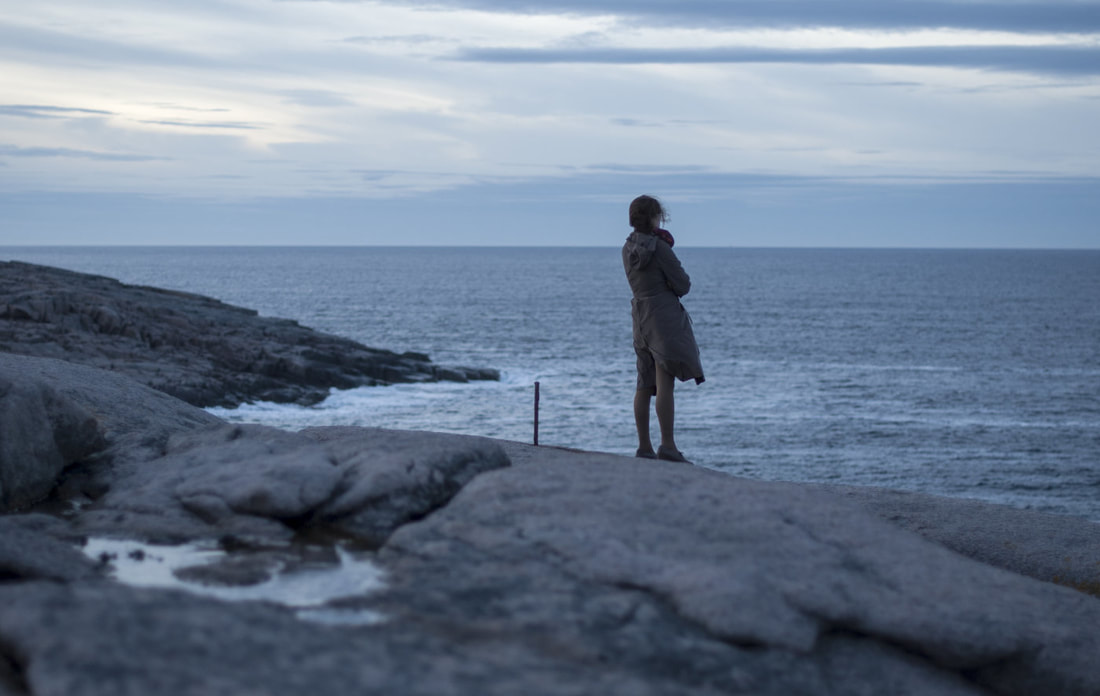These kind of 'little guy against the system' dramas can range from the cloying to the powerful. There's a continuum between On the Waterfront or Mr. Smith Goes to Washington on one end and their many inferior imitators. Leviathan defies that scale with an earned fatalism. There is no reward here for sticking to one's guns. Kolya has already bent by the time the film starts, having agreed to sell his home at the outset. Not receiving a fair payment would break him, and a difficult battle is born. An earnest speech isn't going to work with the robotic functionaries Zvyagintsev repeatedly returns to, immaculately dressed and primped professional women reading breathlessly and flatly from a legal document while never acknowledging the plaintiff in front of them. Leviathan constructs immovable objects in front of Kolya and even with the able Dima by his side, he is hardly an unstoppable force.
Leviathan's depiction of the weight of a corrupt state is suffocating. Vadim is in some ways a cartoon villain, an overweight lush who can't stop himself from dropping by Kolya's in the middle of the night to taunt him. However, that may very well be the point, as any sense of meritocracy has been drummed out of the government by who can pay and how much. With a venal Orthodox bishop validating his actions and the levers of power at his disposal, Vadim is a fearsome opponent. Kolya and Dima have to get in the mud with him to have any hope of success, leaving blackmail as their most powerful tool. Over all the proceedings hangs an askew picture of Putin in Vadim's office, cock-eyed and impassive. Removing any sense of justice or legitimacy has only served to enrich him. For people like Kolya, who dares to resist, they are making themselves targets in an increasingly despotic environment where even the charity and loyalty of one's comrades should not be taken for granted.
What's exceptional about Leviathan is that amongst the bureaucratic oppression and bald-faced corruption, there are moments of genuine warmth and feeling. This is often a crushing film, but ample space remains for characters to share a bit of honesty. Kolya, Dima, Kolya's second wife Lilya (Elena Lyadova), and Kolya's teenaged son Roma (Sergey Pokhodyaev) all hurt each other over the course of the film, but the actors and Zvyagintsev and co-writer Oleg Negin build their relationships deep and strong enough that reconciliation is possible. Kolya and Dima have an affectionate relationship forged in combat, and the constant state of low-level intoxication they live in means plenty of opportunities for brotherly head-nuzzling. Roma's distant, as expected, but the look he has on his face while he watches his father with an old friend is shattering, the kind of look that makes the viewer want to reach into the screen and point Kolya in Roma's direction. Neighbors in the community have a communal bond with each other despite their occasionally aggressive disagreements. The exception is Lilya, a focal point of the film who remains a cipher. Her character is underwritten , lacking in the more complex motivations that much of the rest of the cast has, and it's an oversight that keeps Leviathan from the heights it was otherwise achieving.
Zvyagintsev has been smacked down by censorious high-ranking Russian officials concerned with the image of Russia that he's putting into the world, and after Leviathan and the similarly callous Elena, it's not difficult to see why. He makes bleak films, albeit ones that find slivers of relief amidst the darkness. Leviathan locates a deep well of hypocrisy in Russian society and finds the flawed people at the bottom of the pyramid struggling to remain decent in spite of it. If I was a plutocrat who thought nothing of crushing people, I'd want someone to say 'cut it out,' too. B+

 RSS Feed
RSS Feed